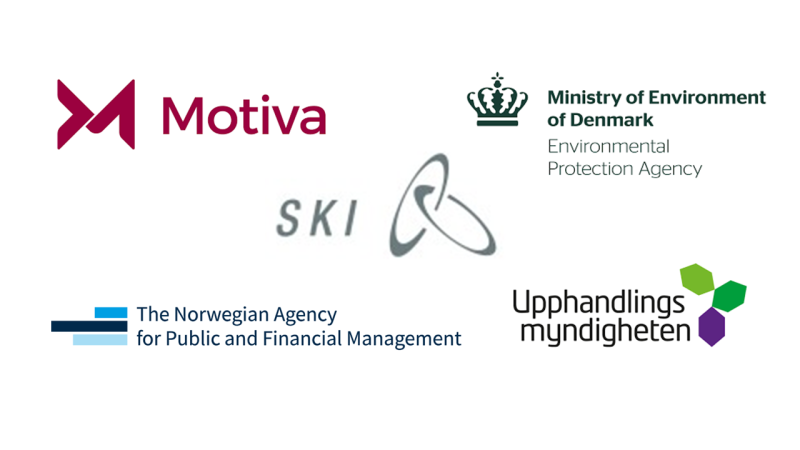CCFPP is a cross-Nordic project, funded by the Nordic Council of Ministers. The project seeks to reduce the footprint of the Nordic public sectors' high level of consumption of products and services, support the growth of circular business models such as reuse and repair, and reduce public spending.
Overview
Norway, Sweden, Denmark, and Finland have launched a strategic collaboration to drive circular solutions, market development and cost-reductions in procurement. The CCFPP-project is under the administrative leadership of the Norwegian Agency for Public and Financial Management (DFØ).
Key focus areas
The project targets four critical areas, with a high potential for reducing the environmental footprint, developing Nordic markets, and cutting public spending. Activities are centred in networks with public procurers from government, municipalities and other public organisations across the region.
By strengthening cooperation among ambitious procurement organizations, the project aims to drive large-scale change. A demand-driven approach and coordinated measuring will help promote a more circular and climate-friendly economy in the Nordic region.
Public procurement a driver for circular solutions
The Nordic countries are committed to advancing sustainability faster and more ambitiously than the rest of the world. The CCFPP project is funded under the Nordic Vision 2030, as one of several initiatives to drive this transition. This collaboration focuses on reducing the environmental impact of public procurement, leveraging the Nordic region's collective purchasing power, estimated at NOK 3,000 billion, to promote circular and climate-friendly solutions.
The CCFPP contributes to the Vision 2030 by:
- Promoting a circular and bio-based economy
- Supporting sustainable and competitive production
- Ensuring resource-efficient and poison-free cycles in the Nordics
- Enhancing international cooperation on environment and climate issues by showcasing Nordic green solutions
Agenda 2030 and the Paris Agreement show the way, but we need to work even more ambitiously and faster. By generating and sharing knowledge, we find new and innovative Nordic solutions. We achieve results by engaging people, organisations and companies – ourselves.
Nordic Vision 2030, Mnisters for Co-operation
The Nordic Region constitutes the world’s 11th largest economy with considerable green purchasing power, and therefore substantial resources for change.
Zero Emission Delivery of Goods Report, Nordic Council of Ministers
Nordic reference group
- Denmark: The Danish Environmental Protection Agency
- Denmark: The Danish State and Local Government Procurement Service (SKI)
- Finland: Motiva
- Norway: The Norwegian Agency for Public and Financial Management (DFØ)
- Sweden: The National Agency for Public Procurement
Project timeline
Highlights from August 2021 to December 2023
August 2021: Project start
December 2021: Nordic Circular Furniture Market Dialogue Conference – Watch the conference
February 2022: Nordic Circular OCT Market Dialogue Conference – Watch the conference
August 2022: Published report on Climate Accounting in Public Procurement
December 2022: The project funded an innovative ICT procurement conducted by Asker Municipality
August 2023: Nordic Zero Emission Delivery Dialogue Workshop
December 2023: The project funded three innovative zero emission delivery procurement projects conducted by
September 2024: The AI-project Green Procurement Analyser was launched.
February 2025: Launch of effect calculators on furniture and ICT, showing potential cost and CO2 savings from buying second-hand, repair and reducing the total number of purchases.
June 2025: Final event for the project in Oslo - Watch the event
Project report(s)
At a glance
- Countries: Denmark, Finland, Norway and Sweden
- Funding: Nordic Council og Ministers under Vision 2030
- Timeline: August 2021 to June 2025
- Stakeholders: Public sector and market suppliers in the Nordics
- Areas of focus: logistics, furntiture, ICT and climate data
- Administrative Body: Norwegian Agency for Public and Financial Management

